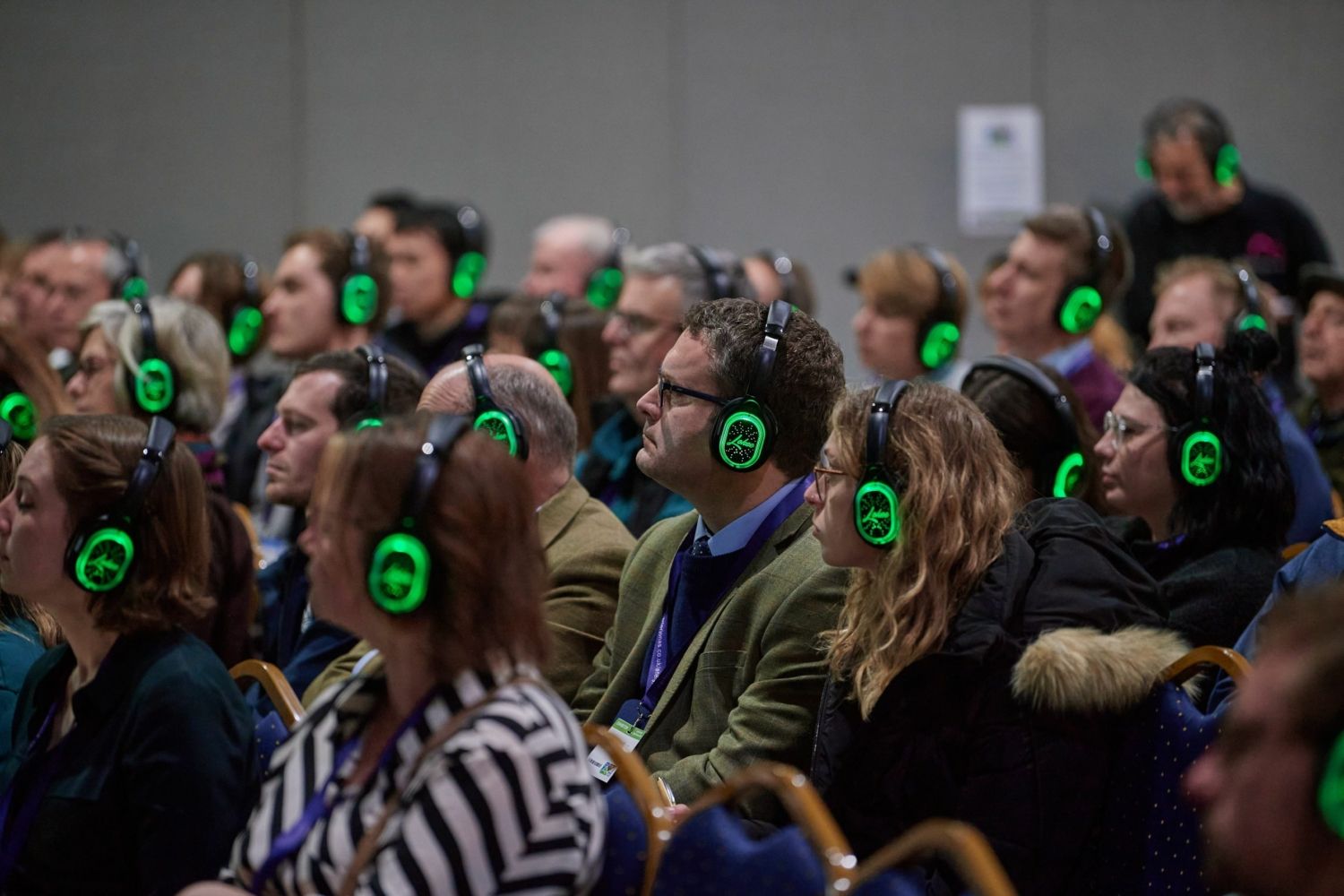Agrecalc welcomes the DEFRA Harmonisation report
)
Agrecalc has welcomed the DEFRA report - “Harmonisation of Carbon Accounting Tools for Agriculture – SCF0129", as an important catalyst to improve consistency across farm carbon reporting tools.
In January 2024, and after engaging in consultations with the industry, DEFRA unveiled a sponsored report titled “Harmonisation of Carbon Accounting Tools for Agriculture”.
The comprehensive report, compiled by ADAS throughout 2023, reflects the status of development of six carbon calculator tools assessed at the time of writing. This evaluation encompasses Agrecalc’s Version 1 carbon calculator.
Below, we provide insights into each of the recommendations outlined in the report, with a focus on how they relate to Agrecalc’s existing features and the recently launched Agrecalc Cloud platform.
Our commentary addresses the alignment of these recommendations with Agrecalc’s current offerings, and the advanced capabilities introduced through the Agrecalc Cloud platform.
1. Industry and HMG to clearly define what a farm-level assessment is, how it is going to be used, and what parts of a farm business should and should not be included.
Agrecalc endeavours to differentiate on-farm activities and outputs based on the National Inventory approach in the UK, adhering to the industry-standard IPCC GHG accounting methodology (IPCC 2019, 2006).
The reporting of emissions within the Agrecalc Cloud is structured around the comprehensive Scope 1, 2, and 3 framework, enabling users to identify the specific scope under which emissions fall.
We report results at the whole farm, enterprise and product level. This approach is complemented by benchmarking emissions and pinpointing hotspots, facilitating the identification of areas for targeted mitigation actions.
The overarching goal is to enhance resource efficiency on the farm by optimising practices and mitigating environmental impact.
2. Calculators to align with the requirements of the latest standards and guidance – currently GHG Protocol standards (including the upcoming Land Sector and Removals guidance) and ISO 14064 and 14067. Industry and HMG to provide guidelines to support a standardised way of applying these in an agricultural context.
Agrecalc was created in accordance with the ISO9001 organisational standard and aligns with the PAS2050:2011 supply chain standard. The Agrecalc Cloud is currently undergoing preparations for certification to meet the ISO14064 and ISO1467 industry standards.
Additionally, our platform aims to achieve full alignment with the GHG Protocol and SBTi FLAG guidance during 2024. This commitment underscores our dedication to maintaining high-quality standards and ensuring environmental sustainability in our operations.
3. Calculator providers to regularly review and update calculators to account for changes in scientific knowledge, carbon accounting methodologies and new emission factors.
Agrecalc has a dedicated Science team tasked with consistently evaluating evidence and staying abreast of the most recent advancements in peer-reviewed scientific methods, accounting methodologies, and emission factor coefficients.
This ongoing process ensures that the tool incorporates the latest and most robust scientific findings into its framework.
4. Calculator to comply with the latest IPCC guidance (currently IPCC 2019) and use those calculations and emission factors as defaults where Tier I approaches are used. Where appropriate, calculators to use Tier II and Tier III calculations where robust emission factors and methodologies are available, such as emission factors created for the UK GHG Inventory.
Agrecalc complies with IPCC (2019; 2006) and AR5 reporting metrics, in line with the reporting standards defined in the UK National Inventory:
- The calculation of ruminant emissions utilises the latest UK Tier II calculations according to IPCC (2019; 2006).
- For UK pig and poultry emissions, Agrecalc goes beyond the current IPCC (2019; 2006) Tier I calculations to apply Tier II calculations from the FAO GLEAM model.
- Nitrous oxide emissions arising from livestock grazing, fertiliser, and manure application are presently computed using IPCC (2019; 2006) Tier II and Tier I methodologies. Anticipated updates in future releases of Agrecalc Cloud will include full transitioning to Tier II for enhanced accuracy.
- As for soil carbon sequestration, the current calculation aligns with IPCC (2019; 2006) Tier I, with forthcoming updates being designed to incorporate Tier II methodologies in subsequent releases of Agrecalc Cloud.
5. Calculators to use emission factors from an agreed set of robust databases for embedded emissions in fertilisers, feeds and fuels. Industry to support the development of appropriate emission factors for embedded emissions in purchased livestock.
Agrecalc Cloud has already adopted standardised databases for emission values, in alignment with the specifications outlined in the report, fostering greater harmonisation:
- Feed emissions are sourced from the Global Feed LCA Institute (GFLI), supplemented by other reputable and robust sources to derive emission factors for feeds not covered by GFLI. This includes by-products, locally relevant UK crops and forage, feed additives, and similar components.
- Emissions embedded in fertilisers are sourced from Bentrup et al. (2018) and Fertilizers Europe, ensuring comprehensive coverage and accuracy in the assessment.
- Emissions associated with fuels and electricity are derived from the Greenhouse conversion factors provided by the UK Government’s Department for Energy Security and Net Zero. This authoritative source contributes to the reliability and consistency of Agrecalc Cloud’s emission calculations.
6. Calculators to present outputs in compliance with the latest standards. Industry and HMG to define consistent disaggregated output categories for use by all calculators to facilitate understanding of emission sources.
Agrecalc consistently enhances its outputs, refining how emissions are reported and their alignment with carbon standards, including the reporting of carbon removals.
As part of our certification to ISO 14064 and ISO 14067, we are currently aligning our outputs with industry standards in 2024, encompassing frameworks such as GHG Protocol and FLAG SBTi.
Emphasising collaboration and industry feedback, Agrecalc actively engages with key stakeholders and participants throughout the agri-food supply chain.
This collaborative approach aids in comprehending industry requirements and advancing consistency in our tools and methodologies.
7. Calculator providers to build user confidence through transparency of approach and third-party verification of the alignment of calculators to minimum standards.
Agrecalc openly communicates the calculations and methodologies employed, informs users on developments and major releases, alongside providing comprehensive guidance for users, accessible on our website.
In collaboration with industry, trade bodies, and fellow calculator providers in the UK, Agrecalc actively contributes to the development of more consistent approaches to on-farm carbon calculation.
Compliant with PAS2050:2011 standards, Agrecalc is focused on aligning with ISO14064, ISO14067, GHG Protocol, and FLAG SBTi guidance.
To underscore our commitment to rigorous standards, we are currently preparing for certification against both ISO14064 and ISO1467 standards in 2024.
In summary:
Agrecalc is dedicated to providing farmers and the broader industry with the most robust and widely accepted scientific methods to confidently identify their emissions and pinpoint areas for reduction.
Our commitment to this pursuit is ongoing and continually evolving. We welcome DEFRA’s Harmonisation report, as it presents an additional opportunity for Agrecalc and other calculators to progress towards increased consistency, fostering confidence and standardisation in our approaches and methodologies.
The recent launch of our advanced Agrecalc Cloud platform, coupled with planned changes in the coming months, evidences a significant advancement from our initial platform, as scrutinised in the DEFRA report, and positions us closer to the harmonised approach advocated in the report.



